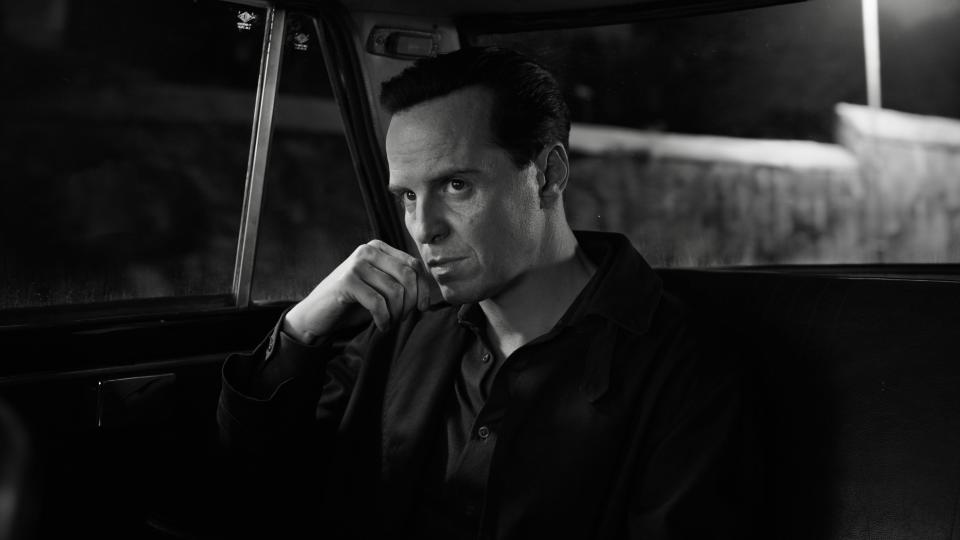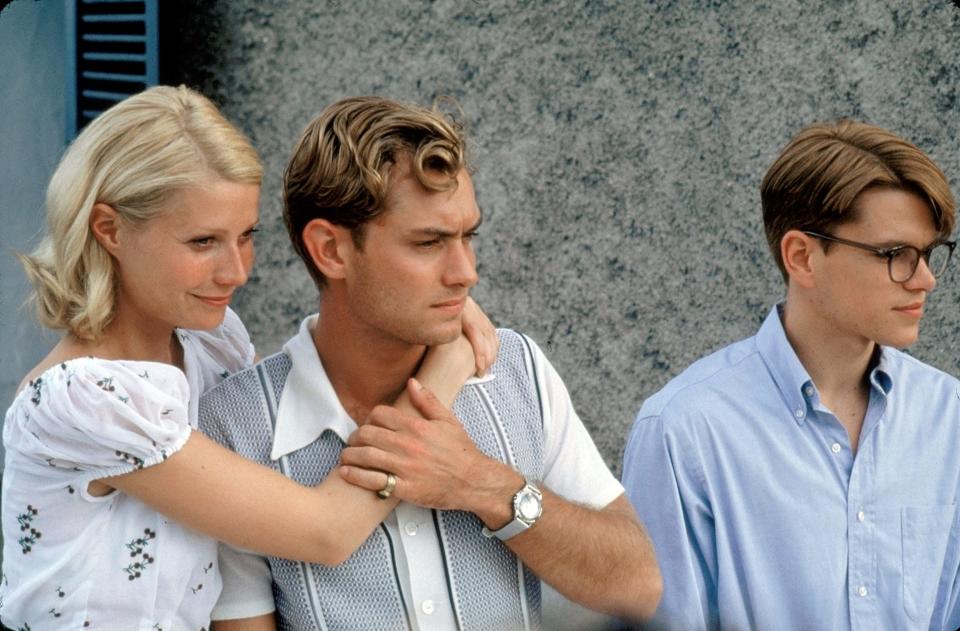In 'Ripley' on Netflix, Andrew Scott gives 'The Talented Mr. Ripley' a sinister makeover
NEW YORK – In new Netflix series “Ripley,” Andrew Scott plays one of pop culture’s most notorious scammers. But offscreen, the Irish actor is usually the one getting duped.
“I’ve fallen victim to fraud so many times,” Scott recalls with a sigh, seated on a couch in a tucked-away office in Union Square. On one occasion, “a woman got me on the street saying her son had been in an accident and she couldn’t get a train. I brought her to an ATM machine and gave her my phone number – what an idiot!”
He didn’t realize he’d been swindled until later that night, “when she called me drunk and laughing at 2 a.m. asking for more money. She was really good at acting!”
Andrew Scott's 'Ripley' is more 'sinister' than the Matt Damon and Jude Law movie

“Ripley” (streaming Thursday) is based on Patricia Highsmith’s 1955 novel “The Talented Mr. Ripley,” which was adapted into an Oscar-nominated 1999 film starring Matt Damon, Jude Law and Gwyneth Paltrow. The story follows a man named Tom Ripley (Scott), who is hired by a shipping tycoon to travel to Italy and convince his son, Dickie Greenleaf (Johnny Flynn), to return to the U.S.
Posing as an old college chum, Tom quickly ingratiates himself into Dickie’s inner circle and laps up his luxurious lifestyle. But Dickie’s girlfriend, Marge Sherwood (Dakota Fanning), has her suspicions about their new friend, which grow after Dickie mysteriously disappears and Tom is questioned about foul play.
The eight-part thriller is written and directed by Steven Zaillian (“The Irishman”). Unlike the sumptuous, sultry movie – which was reworked for Gen Z in last year’s “Saltburn” – Zaillian says he wanted to create something less “beautiful” and more “sinister.” The slow-burning show is shot entirely in black and white, and the characters are aged up from their mid-20s to late 30s.
Our review: Andrew Scott is talented, but 'Ripley' remake is a vacuous flop
Reading the book, “I felt, ‘What do you mean, Dickie’s got to come home? He’s on his post-college break,’” Zaillian says. “It just didn’t feel very believable to me, at least in how we think about 25-year-olds today.” Also, “it’s a little more desperate or pathetic” watching these characters laze about when they’re pushing 40: idly writing and painting, but spending most days just drinking or lounging at the beach.
To play Tom, it was important to find an actor who “could perform, often without any dialogue, and make us understand what he’s feeling,” Zaillian says. Enter Scott, 47, who’s best known for his magnetic turns in “Fleabag” and “All of Us Strangers.” The Emmy nominee was surprised he was considered for the role.
“I was like, ‘What part of my murderous nature are you picking up on?’” Scott jokes. He read all eight scripts during one transatlantic flight and "I was just so gripped by it. Having all this space with Tom and the other characters, the big, bloody events become less significant. A lot of the other scenes are actually quite domestic,” with darkly comic exchanges that showcase Highsmith’s wit.
Netflix show leans into 'queerness' of the Tom Ripley character

“Ripley,” at its heart, is a queer story. (After all, what gay man hasn’t crushed on a straight guy?) The show explores the jealousy and tension between Tom and Marge.
“You spend loads more time with those two characters than you do with Dickie and Tom,” Scott says. “They greet each other with tight smiles, and they dislike in each other what they see in themselves.”
Highsmith denied that Tom was gay, saying in a 1988 interview that he merely “appreciates good looks in other men” and was married to a woman in subsequent novels. But the ‘90s movie embraced the story’s homoeroticism, with Damon's Tom at one point suggesting he join Law's Dickie in the bathtub.

“The film leaned into Tom’s gayness, and this show perhaps leans toward his queerness, in the sense that he’s other,” Scott says. “I was very reluctant with so many different facets of Tom’s personality to diagnose him with anything: his nationality, his age, his sexuality. The reason the character is so enduring is because we have so many questions about him.”
The show forgoes any intimacy. (Chillingly, Tom’s most tender moments are with his victims.) Instead, it finds thrills in the meticulous work that Tom puts into hiding bodies and covering his tracks, occasionally getting tripped up in his own web of lies.
“He’s not a natural-born killer; blood makes him feel a bit queasy,” Scott says. “I think (Highsmith’s) great achievement is that she makes the audience feel what it’s like to be him. You go, ‘What would I do in his position?’ The weird, great pleasure of it is you want him to get away with it.”
That rooting factor is part of what makes “Ripley” so unsettling. Promoting the show, Scott says he’s often asked whether he’s ever met anyone like Tom.
“I think the more interesting question is, ‘How Tom Ripley-ish are you?’”
This article originally appeared on USA TODAY: Netflix' 'Ripley' show puts sinister spin on 'The Talented Mr. Ripley'
